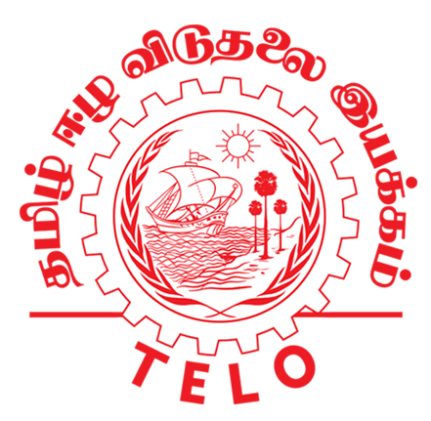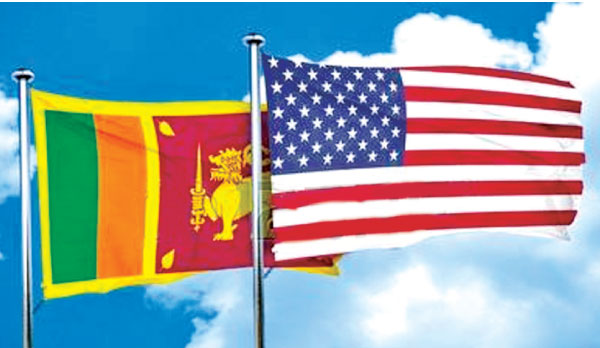An international report on Sri Lanka’s human rights situation said that the Sri Lankan Government has taken minimal steps to identify and punish officials who may have committed human rights abuses.
This situation was flagged in the latest United States (US) State Department report on Sri Lanka’s human rights situation observed last year, titled ‘2023 Country Report on Human Rights Practices: Sri Lanka’ which pointed out both positive and adverse developments.
As per the report, significant human rights issues included credible reports of arbitrary or unlawful killings including extrajudicial killings, torture or cruel, inhuman, or degrading treatment or punishment by the Government, harsh and life threatening prison conditions, arbitrary arrest or detention, serious problems with the independence of the Judiciary, transnational repression against individuals in another country, arbitrary or unlawful interference with privacy, serious restrictions on the freedom of expression and media freedom, including violence and threats of violence against journalists, the unjustified arrests of journalists, and censorship, and also the substantial interference with the freedoms of peaceful assembly and association, including overly restrictive laws on the organisation, funding, or operation of non-governmental organisations (NGO) and civil society organisations (CSOs).
In addition, it pointed out serious governmental corruption, serious governmental restrictions on or the harassment of domestic and international human rights organisations, extensive gender-based violence (GBV) including domestic and intimate partner violence and sexual violence, crimes involving violence targeting Hindus, Muslims, Christians, and Tamils, laws criminalising consensual same-sex sexual conduct between adults even if the laws were not enforced, and crimes involving violence or threats of violence targeting lesbian, gay, bisexual, transgender, queer and questioning, or intersex (LGBTQI) persons.
“During the course of last year, the Sri Lankan Government released on bail dozens of suspects held under the Prevention of Terrorism (Temporary Provisions) Act. The Police also issued new guidelines to respect the rights of LGBTQI persons, and stop the arrest and harassment of transgender persons. In March, the Government indefinitely postponed the Local Government elections, citing the lack of funds, and the terms of Local Authorities across the country expired”.
Respect the integrity
The report pointed out several issues with regard to the respect for the integrity of citizens observed in 2023. Pointing out the arbitrary deprivation of life and other unlawful or politically-motivated killings, among other issues, the report explained that there were several reports that the Government or its agents committed arbitrary or unlawful killings, including extrajudicial killings. It noted multiple deaths in Police custody, with many incidents following a similar pattern, and that many deaths occurred when the Police took suspects to the alleged crime scenes as part of an investigation or claimed that suspects attacked them during interrogation or attempted to escape.
With regard to disappearances, the report explained that there were no reports of disappearances by or on behalf of governmental authorities, adding that the Office on Missing Persons (OMP) had reported that as of the end of October, 2023, it had not received any new complaints of missing persons or enforced disappearances.
However, the report said: “There was little progress investigating allegations of abuses from the 1983-2009 civil war or from the 1988-1989 Marxist insurrection in the South. Impunity and the lack of accountability for war era abuses remained a problem. Disappearances during the war and its aftermath remained unresolved. Families of disappeared and missing persons remain frustrated with the lack of progress in investigating cases and the lack of answers from the Government or the OMP.”
With regard to impunity observed in cases of torture and other cruel, inhuman, or degrading treatment or punishment, and other related abuses, the report said: “Impunity remained a significant problem characterised by a lack of accountability for abuses, particularly regarding Government officials, the military, paramilitaries, the police, and other security sector officials. CSOs asserted that the Government, including the Courts, was reluctant to act against security forces personnel alleged to be responsible for abuses. CSOs reported that some Tamils from the North alleged that the Police illegally detained and tortured them and questioned them regarding connections to the Liberation Tigers of Tamil Eelam or participation in protests.”
Moreover, the report discussed prison and detention centre related conditions, arbitrary arrest of detention, the denial of fair public trial, transnational repression, property seizure and restitution, and arbitrary or unlawful interference with privacy, family, home or correspondence.
Civil liberties
Discussing issues pertaining to the respect for civil liberties in Sri Lanka in 2023, the report pointed out that despite the fact that the Constitution has provided for the freedom of expression, including for members of the press and other media, the Government sometimes restricted this right. It added that the authorities restricted hate speech, including insults to religion or religious beliefs, through the Police Ordinance and the Penal Code, and that there were also reports that the authorities attempted to intimidate individuals who criticised the Government, including through public statements, questioning by security officials, official visits to their homes, and arrests.
Quoting the civil society, it drew attention to the use of the International Covenant on Civil and Political Rights (ICCPR) Act and the Penal Code’s provisions against hate speech to curtail the freedom of expression.
The freedoms relating to the freedoms of peaceful assembly and association, religion, movement and the right to leave the country, the protection of refugees, and of the status and treatment of internally displaced persons, were among the other aspects of civil liberties about which the report expressed concerns.
Corruption in Govt.
“The law provided criminal penalties for corruption by officials. But, the Government did not implement the law effectively. There were numerous reports of Government corruption during the year,” the report observed.
Adding that corruption remained a significant and continuing problem, including at the highest levels of Government, the report pointed out that international companies frequently reported requests for bribes on matters ranging from Customs clearances to Government procurement.
“In July (2023), the Parliament passed, by unanimous consent, new Anti-Corruption legislation. This was a required structural benchmark of the International Monetary Fund (IMF) programme. The legislation expanded the mandate of the Commission to Investigate Allegations of Bribery or Corruption (CIABOC) and changed both the way that the CIABOC was funded and how it could recruit investigators in order to provide greater independence. The law required politicians to publicly declare assets. The law also expanded and created new criminal offences for corruption, including recognising the demand for sexual favours as a criminal form of corruption, and increased the fines for offences. Numerous civil society groups criticised the law for insufficient whistleblower protections and for insufficient protection of the right to information, but overall, they welcomed the law as a step in the right direction,” the report said, noting that although the civil society and the private sector saw a window of opportunity to address endemic corruption in the country, they were concerned that the Government and the CIABOC lacked the capacity and political will to do so.
Discrimination & societal abuses
Regarding rape and domestic violence, the report said that although the law prohibited rape and domestic violence, the enforcement of the law was inconsistent: “The law did not criminalise the rape of men, as the law defined the act of rape as being a man having sexual intercourse with a woman without the consent of the woman, although it did criminalise “grave sexual abuse.” The law prohibited spousal rape only if the spouses were legally separated. The prescribed penalties for rape were seven to 20 years’ of imprisonment and a fine. For domestic violence, a victim could obtain a protection order for one year and request a maintenance allowance.”
Furthermore, citing women’s organisations, it pointed out the issue of Police and Judiciary responses to rape and domestic violence incidents and cases being inadequate.
Female genital mutilation and cutting, discrimination, and reproductive rights related issues were also discussed, noting that when it comes to other forms of GBV or harassment, sexual harassment was common in various contexts and geographical areas.
“The country’s Indigenous people, known as the Veddas, reportedly numbered fewer than 1,000. Some preferred to maintain their traditional way of life, and the law generally protected them, although some faced land encroachment. They freely participated in political and economic life without legal restrictions, but some did not have legal documents,” the report said about the indigenous community, adding that when it comes to anti-Semitism, which relates to another small community (Jewish) living in the country, there were no known reports of anti-Semitic incidents.
Systemic racial or ethnic violence and discrimination, child abuse, including early and forced marriages, the trafficking in persons, human rights violations based on sexual orientation, gender identity and/or expression, and issues faced by persons with disabilities, also received the report’s attention.
Workers’ rights
The report discussed employment related concerns such as the freedom of association and the right to collective bargaining, the prohibition of forced or compulsory labour, the prohibition of child labour and the minimum age for employment, and discrimination.
Regarding acceptable conditions of work, the report paid attention to wage and hour related laws, and occupational safety and health, especially their practical implementation, adding that in many cases, the existing labour laws and regulations were not adequately implemented and that their implementation was not properly monitored.
“The authorities did not effectively enforce occupational safety and health standards in all sectors. The Labour Ministry’s resources, inspections, and remediation efforts were insufficient. The number of Labour Inspectors was insufficient for the country’s workforce. CSOs accused the Labour Department of being ‘lax with regards to the tea estate sector’ and not thoroughly investigating labour complaints.”
In addition, the report shed light on concerning developments relating to the freedom to participate in the political process, discrimination and societal abuses, the Governmental position towards international NGOs monitoring and investigation of alleged abuses of human rights, and workers’ rights.
The Daily Morning’s attempts to contact the Justice Ministry and the Foreign Affairs Ministry to discuss their stance with regard to the report proved futile.





